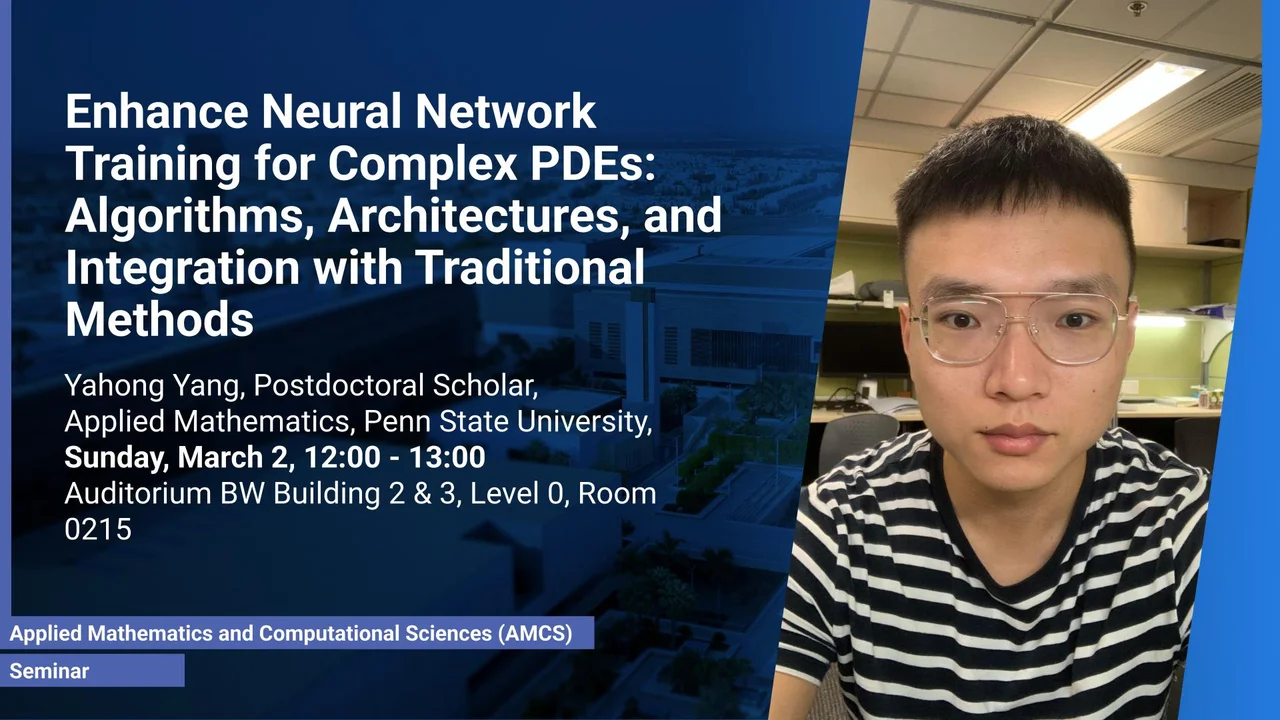
Enhance Neural Network Training for Complex PDEs: Algorithms, Architectures, and Integration with Traditional Methods
Auditorium between Building 2 - 3, L0 R0215
This talk explores recent research on improving neural network methods for solving partial differential equations (PDEs) by addressing training challenges through novel algorithms, architectures, and integration with traditional numerical techniques.
Overview
Neural networks have emerged as powerful tools for solving partial differential equations (PDEs), with applications spanning physics, chemistry, biology, and beyond. Based on our research, neural networks demonstrate superior approximation capabilities compared to traditional methods like finite element approaches and can overcome the curse of dimensionality. Moreover, they can approximate operators, enabling efficient PDE solutions without retraining when equation parameters change. However, training neural networks to effectively approximate such functions and operators presents significant challenges due to the inherently non-convex nature of the problem, especially for complex PDEs in biology and engineering. Two critical factors influencing performance are the design of training algorithms and the architecture of neural networks. In this talk, I will present several recent works to tackle these challenges by improving training algorithms, redesigning neural network architectures, and integrating traditional numerical methods. First, we introduce homotopy training algorithms, which help escape local minima and achieve faster convergence. Next, we explore strategies to optimize neural network architectures and refine loss functions by leveraging insights into training dynamics, thereby enhancing overall performance. Finally, we propose combining traditional numerical methods with operator learning to solve complex PDEs with multiple solutions more effectively.
Presenters
Dr. Yahong Yang, Postdoctoral Scholar, Pennsylvania State University, USA
Brief Biography
Dr. Yahong Yang received his Ph.D. in Mathematics from the Hong Kong University of Science and Technology in 2023 and is currently a postdoctoral researcher at Pennsylvania State University. His research interests encompass machine learning theory, mathematical modeling in materials science and biology, as well as numerical partial differential equations. In recent years, he has published several first-author papers in top international journals such as SIAM Journal on Multiscale Modeling and Simulation and Journal of Scientific Computing, and he has presented multiple papers at leading machine learning conferences, including NeurIPS and ICML. His current research focuses on the theory of deep learning and employing machine learning techniques to solve complex partial differential equations, such as the Allen–Cahn equation, the Gray–Scott model, and problems involving Green’s functions.